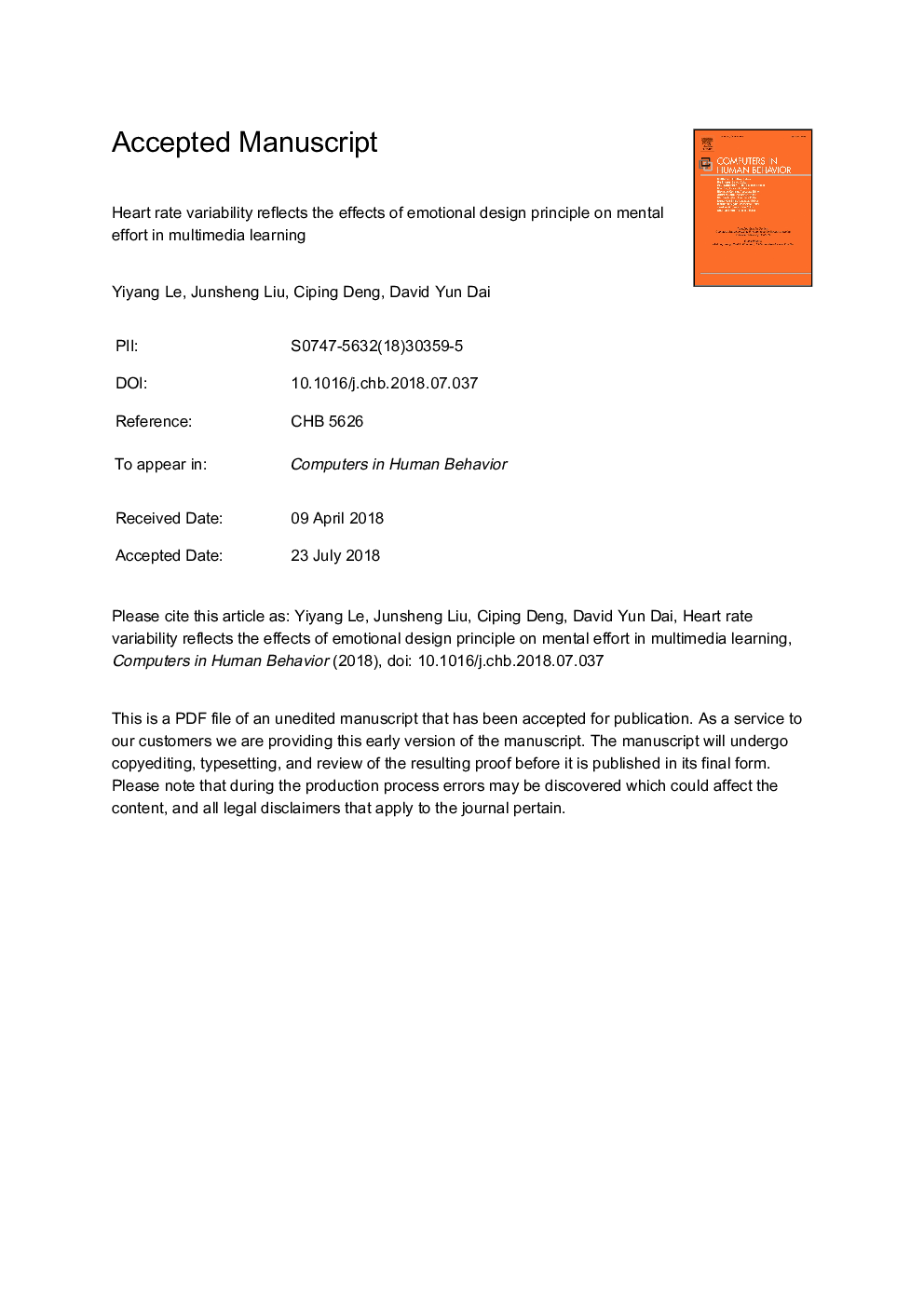| Article ID | Journal | Published Year | Pages | File Type |
|---|---|---|---|---|
| 6835638 | Computers in Human Behavior | 2018 | 38 Pages |
Abstract
Recent studies have indicated that there are benefits to be derived from incorporating emotional design principles into multimedia lessons. However, the results of how this principle affects the amount of mental effort that is exerted in learning have been mixed. In this study, the effect of the emotional design principle on individuals' mental effort investment was examined using effort-related physiological measures (i.e., heart rate variability). Sixty college participants, of whom 30 were in a positive emotional design group and the remaining 30 in a neutral emotional design (control) group, received a six-minute-long set of biology multimedia instructions. Compared to the participants in the neutral design group, the participants in the positive emotional design group performed better on a subsequent retention test and had a stronger decrease in the high-frequency band of heart rate variability in the instruction session. These findings are consistent with the affective mediation assumption of Cognitive Affective Theory of Learning with Media and indicate the potential importance of including affective and motivational factors in multimedia learning research.
Related Topics
Physical Sciences and Engineering
Computer Science
Computer Science Applications
Authors
Yiyang Le, Junsheng Liu, Ciping Deng, David Yun Dai,
